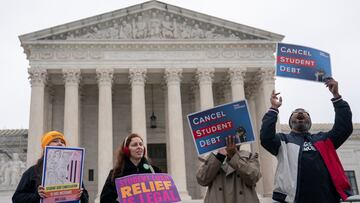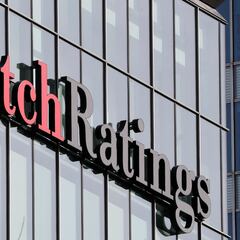What happens if you don’t start repaying your student loans?
Being unable to repay your student debt will have crippling economic consequences in future, making it a necessity to pay it back.


A part of the covid-19 pandemic measures was to make sure students were protected from the crippled economy. The debt moratorium has so far prevented students from accruing interest as well as stopping repayments, for a time.
After being extended multiple times, the moratorium will end at the end of August with student debt payments resuming on 1 September. With 70% of borrowers not knowing that payments are to resume, this will be a worry for many having to trump up hundreds of extra dollars a month. Debt forgiveness plans died in the Supreme Court earlier this year.
Notice how essentially nobody in Washington asks “if we can afford” an $886 billion defense budget?
— Robert Reich (@RBReich) July 31, 2023
No, we only hear that when we need health care, or student debt relief, or climate action, or paid family leave, or universal pre-K, or child-poverty relief.
However, there is a one-year leniency program that will begin 1 October, 2023 and end on 30 September, 2024 to help borrowers avoid the harshest consequences of missed, partial or late payments,” according to the Education Department.
What is the “on-ramp” period?
Individuals who fail to make payments on time or experience delays will not have their information shared with credit reporting agencies, nor will they be categorised as being in default.
Furthermore, their loans will not be forwarded to collection agencies.
What will happen after the “on-ramp” period?
An option is the SAVE plan. The SAVE plan aims to lower monthly payments for borrowers and eliminate them entirely for individuals who meet the income criteria. It will also halt the accumulation of unpaid interest as long as repayments are made promptly. You simply have to be enrolled in an Income Driven Repayment plan for paying back your student debt.
Otherwise there are of course bad consequences for not paying your debts. If you do not make payment on your student loan within 90 days, it will be marked as delinquent, resulting in a negative impact on your credit score.
The U.S. Now Has:
— The Kobeissi Letter (@KobeissiLetter) August 8, 2023
1. Record $17.1 trillion in household debt
2. Record $12.0 trillion in mortgages
3. Record $1.6 trillion in auto loans
4. Record $1.6 trillion in student loans
5. Record $1.0 trillion in credit card debt
Total mortgage debt is now more than double the 2006…
Related stories
If you continue to miss payment deadlines, interest will continue to accrue on the outstanding balance of your loan. After 270 days, your loan will go into default. When a loan is in default, the entire remaining balance becomes due immediately, and the lender (also known as the US government) will take legal action to collect the debt.
Ultimately, this will lead to assets being sezied and you being denied access to certain federal support systems such as social security.

